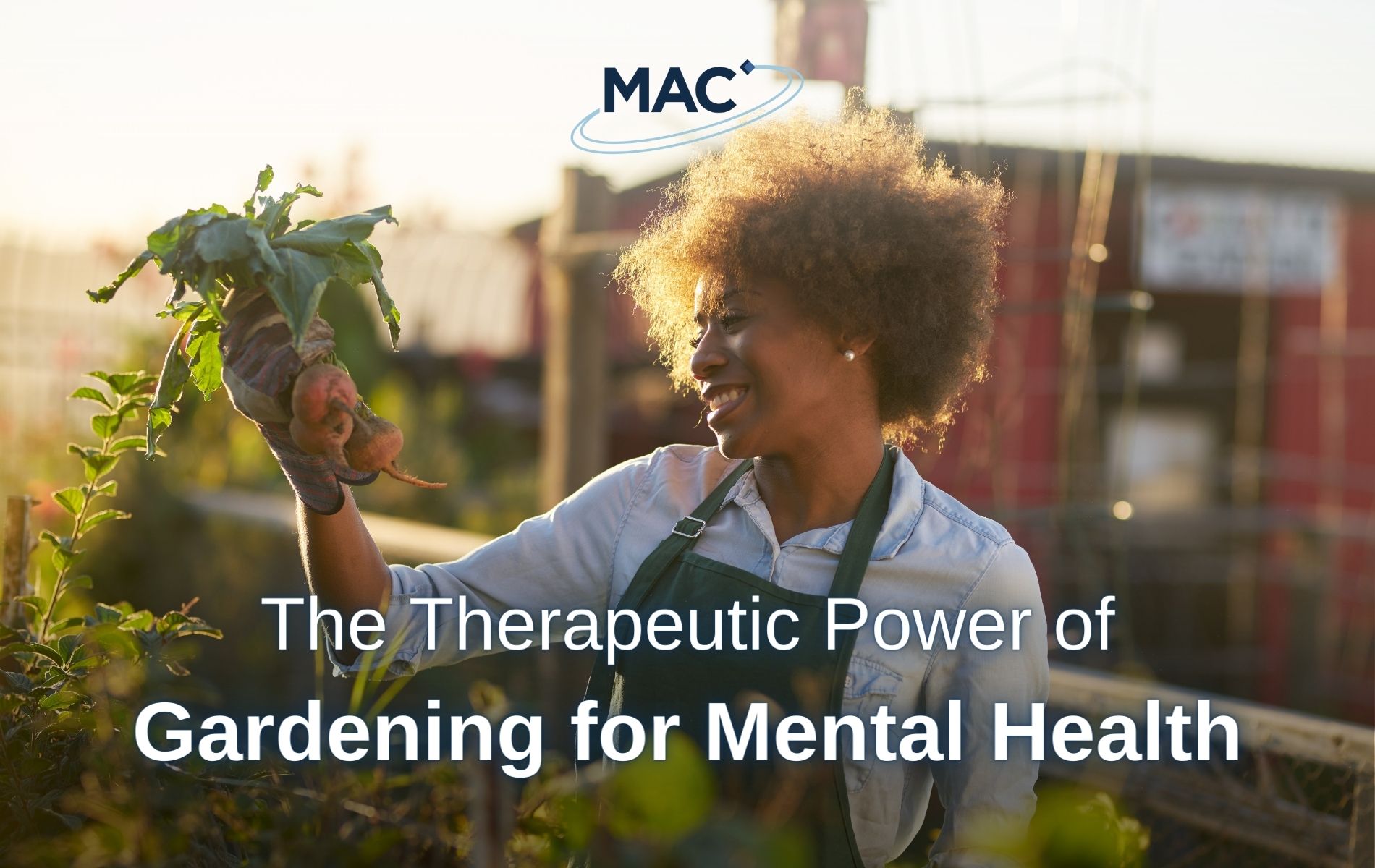In a world where stress and anxiety often seem to be at the forefront of people’s lives, finding solace in nature has never been more important. With National Gardening Week upon us, it’s the perfect time to celebrate the therapeutic benefits of gardening, particularly its profound impact on mental health, specifically depression.
What is Depression?
Depression, sometimes referred to as Major Depressive Disorder (MDD), is when a person experiences intense and overwhelming feelings of sadness and hopelessness. Around 1 in 6 adults in the UK stated they have experienced moderate to severe depressive symptoms1.
While traditional treatments such as therapy and medication (antidepressants) remain crucial, there’s a growing recognition of the complementary role nature-based activities like gardening can play in alleviating symptoms and promoting well-being.
Gardening and Mental Health
Gardening offers a refuge from the chaos of modern life. The act of tending to plants, nurturing them from seed to fruition, fosters a profound sense of purpose and accomplishment. Witnessing the gradual growth and blooming of a garden mirrors the journey of recovery from depression, reminding individuals that healing is a gradual process, requiring patience and perseverance.
In a survey of people who attended regular gardening sessions, 80% reported better mental health and 93% said that their confidence and motivation improved due to their involvement in the activity2.
Further studies have shown that gardening can significantly reduce symptoms of depression and anxiety, thanks to its unique blend of physical activity, mindfulness, and exposure to natural light and fresh air. Digging in the soil not only strengthens muscles but also releases endorphins, the body’s natural mood lifters, promoting a sense of well-being and vitality.
Nearly two thirds of UK adults claimed that spending time gardening or amongst nature has improved their mental health and reduced stress3.
Furthermore, gardening encourages mindfulness, the practice of being fully present and engaged in the moment. As individuals immerse themselves in the rhythmic tasks of planting, weeding, and watering, worries and rumination may begin to gradually fade into the background, replaced by a sense of serenity and inner peace.
Perhaps most importantly, gardening fosters a sense of connection—to oneself and to others. Whether it’s swapping gardening tips with fellow enthusiasts, sharing homegrown produce with friends and family, or simply marvelling at the beauty of a luscious garden, gardening brings people together, fostering a sense of community and belonging that is essential for mental wellbeing.
As we celebrate National Gardening Week, let us not only revel in the beauty of blossoms and the bounty of harvests but also reflect on the profound impact gardening can have on mental health, particularly in the fight against depression.
Living with Depression?
If you or a loved one is living with depression, you could help researchers investigate potential new treatments. MAC Clinical Research are running clinical trials at their clinics across England and, if eligible, you could receive up to £3,263 for your time and commitment to the study. Eligible participants will also receive travel expenses and a full health check-up.
To find out more and register your interest, visit MAC’s current trials page webpage.
1 Office for National Statistics – Cost of living and depression in adults, Great Britain: 29 September to 23 October 2022
2 Thrive – Why gardening is good for your mental health






